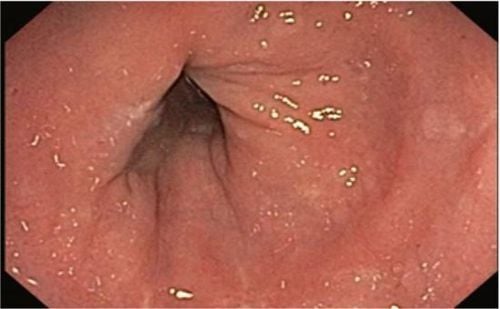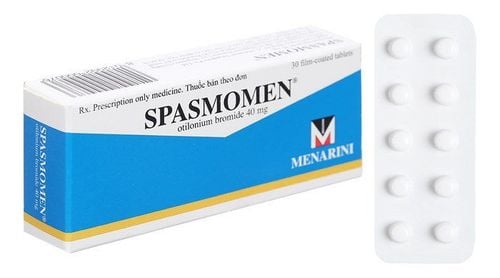This is an automatically translated article.
Posted by Doctor Mai Vien Phuong - Department of Medical Examination & Internal Medicine - Vinmec Central Park International General Hospital
Microscopic colitis is a chronic inflammatory condition of the colon that is characterized by the clinical presentation of chronic diarrhea but the patient has a normal colonoscopy and the diagnosis is based only on histology. pathology.
1. Clinical symptoms
Clinically, it is indistinguishable between collagenous colitis and lymphoid colitis, which are two types of microscopic colitis. The prominent symptom of microscopic colitis is chronic diarrhea without blood in the stool. Chronic diarrhea is defined as when the condition persists for more than 4 weeks. Watery stools make patients feel the need to defecate immediately (70% of patients) or incontinence (40% of patients). In severe cases, patients may have more than 15 bowel movements/day and often have nocturnal diarrhea (50% of patients). However, severe dehydration, electrolyte disturbances, or other complications are uncommon. In advanced stages of the disease, patients often have a significant impact on quality of life. According to Hjortswang et al., 2 - 3 bowel movements/day or >1 watery loose stools/day are closely related to reduced quality of life of patients. Abdominal pain is also a common symptom. The incidence of abdominal discomfort or cramping can be as high as 50%, and the differential diagnosis of microscopic colitis from irritable bowel syndrome is difficult. According to a cohort study, 43% of patients with gastritis met Rome II criteria. Moderate or severe abdominal pain is seen in advanced disease. Weight loss can be seen in nearly 50% of patients with advanced disease due to loose stools causing dehydration as well as changes in eating habits.
2. Approach to diagnosis of microscopic colitis
Take history
Diarrhea features: nature, frequency, course, time to progression, bloody mucus, nocturnal diarrhea, bowel incontinence) Skinny weight loss Family history (disease) enteritis, Celiac, multifocal endocrine malignancy) Drug history (abuse of laxatives, adverse drug reactions, radiation enteritis, gastrointestinal surgery, cholecystectomy. body
Diet (lactose malabsorption, fructosa, sorbitol, Celiac) Occupational history, travel, HIV exposure, persistent recurrent infections Diet (lactose malabsorption, fructosa, sorbitol, Celiac) Initial assessment
Fecal tree: Clostridium difficile, stool culture, fresh parasitoscopy, fecal antigen Giardia Serum test: blood count, electrolytes, protein, albumin, hematocrit, gland function thyroid Serum test for Celiac disease Lactose intolerance test Endoscopy + biopsy Grave pathology

3. Difficult situations in diagnosis and association with microscopic colitis
Microscopic colitis may be diagnosed in patients with concomitant IBS, IBD, or celiac disease. Others include chronic ischemia or infectious colitis, hyperthyroidism, carcinoids, or prolonged NSAID use. A quick way to distinguish chronic diarrhea in patients with microscopic colitis from those with IBD is that the mucosal structure is preserved. One study found that a person with celiac disease had a 70-fold increased risk of developing microscopic colitis when compared to the general population. Concurrent celiac disease is present in approximately 5% of patients with microscopic colitis. IBD may have focal areas of microscopic colitis.
Concomitant autoimmune disease, including celiac disease, with CT colitis is more common than lymphocytic colitis (53% to 26%, respectively). Differentiating celiac disease from microscopic colitis requires serologic testing, such as anti-tTG antibodies.
Please dial HOTLINE for more information or register for an appointment HERE. Download MyVinmec app to make appointments faster and to manage your bookings easily.














